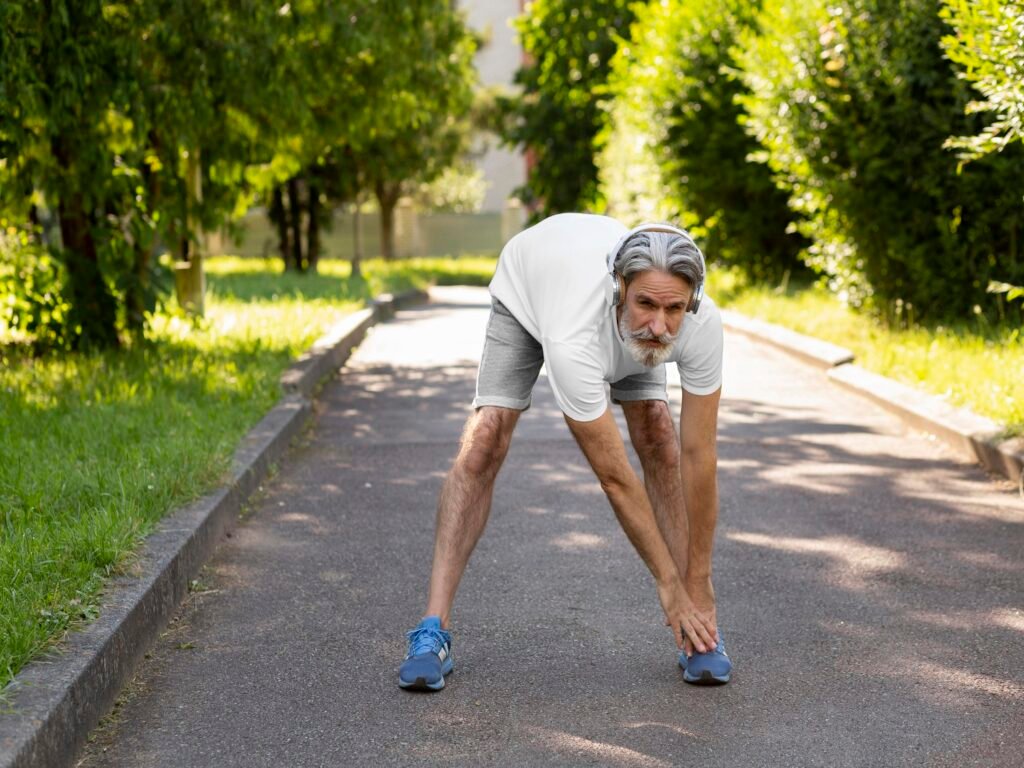Longevity Fundamentals - Insights from the WW-FINGERS Study and Anti-Aging Tips

Waking each day with increased energy compared to yesterday, irrespective of the numbers written on your birth certificate, may seem like an excerpt from science fiction. With groundbreaking research and actionable strategies, it is becoming possible.
Aging is a natural phenomenon that cannot be stopped. However, with research, advancements and actionable steps, it can be slowed down and even partially reversed. In this new frontier of aging and longevity, the ultimate goal is not just to add years to your life but to add life to your years.
Understanding Aging Mechanisms - How Do We Grow Old
Aging is an inevitable aspect of human life, marked by the gradual decline of essential physiological functions. This process is influenced by a complex interplay of intrinsic and extrinsic factors.
Intrinsic aging, driven by biological, physiological, psychological, and genetic factors, results in gradual cellular and molecular changes. Extrinsic aging, on the other hand, is influenced by external factors such as behavior, social and lifestyle choices, environmental exposures, and habits, which can accelerate the decline in physiological functions. Here is how these intrinsic and extrinsic factors actually impact your body and make you age.
Cellular Senescence: Cellular senescence occurs when cells stop dividing and undergo significant changes, including alterations in gene expression and the secretion of inflammatory cytokines, growth factors and proteases. This state is primarily triggered by cellular stress such as DNA damage, oxidative stress, and telomere shortening. Initially serving as a tumor-suppressive mechanism by halting the proliferation of damaged cells, senescence contributes to aging and age-related diseases when these cells accumulate over time. Over time, cells accumulate genetic mutations and errors that impair function.
Telomere Shortening: Telomeres, protective caps at the ends of chromosomes, shorten with each cell division. When they become critically short, cells can no longer divide, leading to senescence.
Oxidative Stress: Oxidative stress results from an imbalance between free radicals and antioxidants. Free radicals are highly reactive molecules that can damage cellular components such as DNA, proteins and lipids, leading to cellular dysfunction and aging. Excessive oxidative stress accelerates the aging process and contributes to various age-related diseases.


WW-FINGERS Study Findings
The WW-FINGERS (World-Wide FINGERS) study is a global initiative inspired by the Finnish FINGER study, aimed at reducing dementia and cognitive decline through lifestyle interventions. These interventions include dietary guidance, physical activity, cognitive training and vascular risk management, aiming to enhance both longevity and quality of life.
Promising outcomes have been observed in various countries under the WW-FINGERS umbrella. For example, the MIND-CHINA study in rural China and the GOIZ-ZAINDU trial in Spain focus on multi-domain interventions that target cognitive and physical functions. These ongoing studies are assessing the effectiveness of such interventions in preventing cognitive decline.
Nutritional intake plays a significant role in cognitive health. Essential nutrients like omega-3 fatty acids and vitamins, along with dietary patterns such as the DASH, MIND, and Mediterranean diets, significantly reduce the risk of cognitive impairment. These diets, while sharing a foundation of plant-based foods, healthy fats, and lean proteins, have distinct health focuses and dietary restrictions:
- The DASH Diet is tailored for lowering blood pressure, it emphasizes reduced sodium intake and specific servings from various food groups.
- The MIND Diet combines elements of both DASH and Mediterranean diets to enhance brain health, focusing on specific foods like leafy greens and berries, and restricting others linked to cognitive decline.
- The Mediterranean Diet is based on traditional dietary patterns of the Mediterranean region, it includes moderate wine consumption and a high intake of olive oil, offering more flexibility in dairy consumption compared to the DASH diet
These diets not only promote overall health but also provide specific benefits for cardiovascular health, cognitive function, and longevity.
Furthermore, the study highlighted that dementia arises from a complex interplay of lifestyle, genetics, and environmental factors, necessitating tailored approaches based on individual risk profiles and life stages for effective management and prevention.
At the same time, Artificial intelligence (AI) brings hope by redefining the effectiveness of these strategies, enhancing the accuracy and efficiency in detecting early signs of cognitive decline and other age-related conditions.
Practical Tips For Better Cognitive Health and Longevity
Maintaining cognitive health and promoting longevity are crucial goals as we age. The following evidence-based tips can help you achieve these objectives by incorporating beneficial lifestyle changes.
Dietary Changes
It is important to eat a diet rich in omega-3 fatty acids, folate, vitamins B6 and B1, and antioxidants, including vitamins A, C, and E. The food we consume plays a crucial role, and thus, should have these essential macro- and micronutrients to keep one away from cognitive disabilities. Studies suggest that Mediterranean, Nordic, DASH, and MIND diets are directly related to lower risk of dementia.
Regular Physical Activity
Another essential component is regular physical exercise. Various studies highlight the importance of physical exercise, which can range from moderate to intense, in enhancing cognitive abilities. In older adults, intense physical activity is related to mitigation of cognitive decline and a reduction in dementia.
Management of cardiovascular Risks
The management of cardiovascular health plays an essential role in alleviating the risk of dementia and cognitive decline. It includes managing early indicators of diabetes, cholesterol and hypertension.
Cognitive Training
Optimizing Sleep
Sleep plays a crucial role in affecting how our brain functions and performs. Studies suggest that getting good quality deep sleep can mitigate cognitive issues and even situations like Alzheimer’s.
Stress Management
Effective stress management is essential for cognitive health, as stress can negatively impact memory, concentration, and reasoning abilities. Incorporating stress-reducing practices into your daily routine can enhance cognitive functions and overall well-being.
Wrapping Up
We decide the quality of life we will live. Aging is an inevitable part of life, and we cannot stop it. However, with certain practical changes and research-backed strategies, we can influence the way we age. The WW-FINGERS study shows that we can definitely enhance our health span. These research-based studies and steps are all that you need to follow for better cognitive health and longevity. Organizations across the world are aiming to mitigate dementia with science, reversing the effects of aging. For more information feel free to read more related content from our free Articles page or to contact us for a consolidated program.

